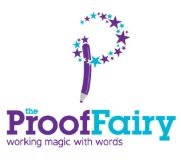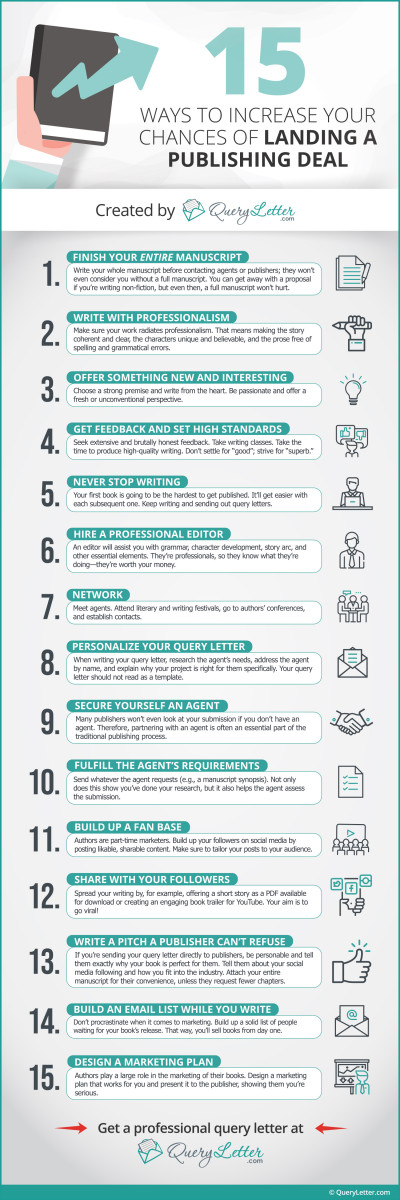I am a big fan of self-publishing. Having experienced both traditional publishing and self-publishing with my first book The Boy From Hell: Life with a child with ADHD, and written about my issues with traditional publishing here, I don’t know that I would bother looking for a publishing deal again. For me, the benefits of self-publishing – more control, faster publication time, monthly royalty payments, real-time sales stats etc. – far outweigh those of working with a publishing house.
However, I know there are some people who still see self-publishing as an inferior option, and many people who would love to win that elusive publishing deal. And there’s nothing wrong with that! Horses for courses, as the saying goes. Whatever works for you.
So, with that in mind, here’s an interesting infographic giving you some great tips on how to win a contract for your book. And if I can help with anything on the list – for example, editing or proofreading your manuscript – you know where to come!
Click the image for a full size version, or scroll down for the text version.
Text version
1. Finish your entire manuscript
Write your whole manuscript before contacting agents or publishers; they won’t even consider you without a full manuscript. You can get away with a proposal if you’re writing non-fiction, but even then, a full manuscript won’t hurt.
2. Write with professionalism
Make sure your work radiates professionalism. That means making the story coherent and clear, the characters unique and believable, and the prose free of spelling and grammatical errors.
3. Offer something new and interesting
Choose a strong premise and write from the heart. Be passionate and offer a fresh or unconventional perspective.
4. Get feedback and set high standards
Seek extensive and brutally honest feedback. Take writing classes. Take the time to produce high-quality writing. Don’t settle for “good”; strive for “superb.”
5. Never stop writing
Your first book is going to be the hardest to get published. It’ll get easier with each subsequent one. Keep writing and sending out query letters.
6. Hire a professional editor
An editor will assist you with grammar, character development, story arc, and other essential elements. They’re professionals, so they know what they’re doing–they’re worth your money.
7. Network
Meet agents. Attend literary and writing festivals, go to authors’ conferences, and establish contacts.
8. Personalize your query letter
When writing your query letter, research the agent’s needs, address the agent by name, and explain why your project is right for them specifically. Your query letter should not read as a template.
9. Secure yourself an agent
Many publishers won’t even look at your submission if you don’t have an agent. Therefore, partnering with an agent is often an essential part of the traditional publishing process.
10. Fulfil the agent’s requirements
Send whatever the agent requests (e.g., a manuscript synopsis). Not only does this show you’ve done your research, but it also helps the agent assess the submission.
11. Build up a fan base
Authors are part-time marketers. Build up your followers on social media by posting likable, sharable content. Make sure to tailor your posts to your audience.
12. Share with your followers
Spread your writing by, for example, offering a short story as a PDF available for download or creating an engaging book trailer for YouTube. Your aim is to go viral!
13. Write a pitch a publisher can’t refuse
If you’re sending your query letter directly to publishers, be personable and tell them exactly why your book is perfect for them. Tell them about your social media following and how you fit into the industry. Attach your entire manuscript for their convenience, unless they request fewer chapters.
14. Build an email list while you write
Don’t procrastinate when it comes to marketing. Build up a solid list of people waiting for your book’s release. That way, you’ll sell books from day one.
15. Design a marketing plan
Authors play a large role in the marketing of their books. Design a marketing plan that works for you and present it to the publisher, showing them you’re serious.
Thanks to www.queryletter.com for use of the infographic and text.
If you need help with any aspect of editing, proofreading or publishing, get in touch!







